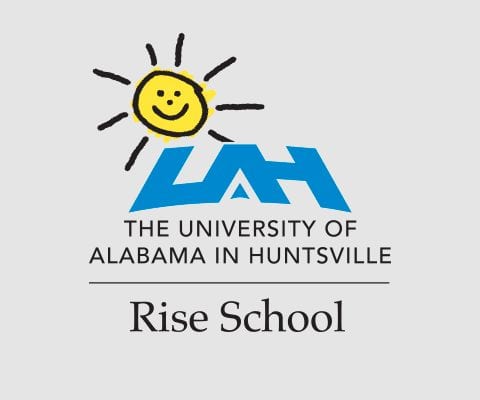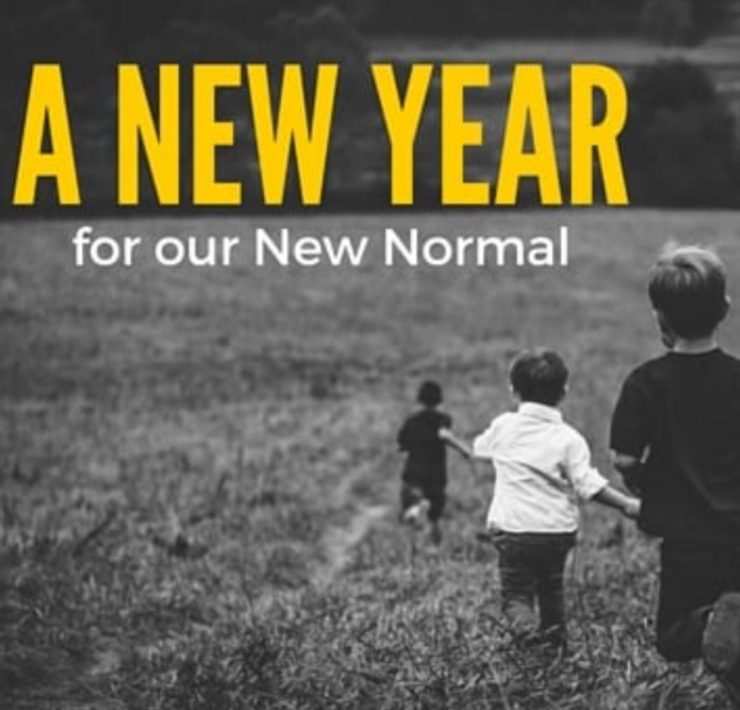Inclusion Program at Rise School Makes Every Child Special
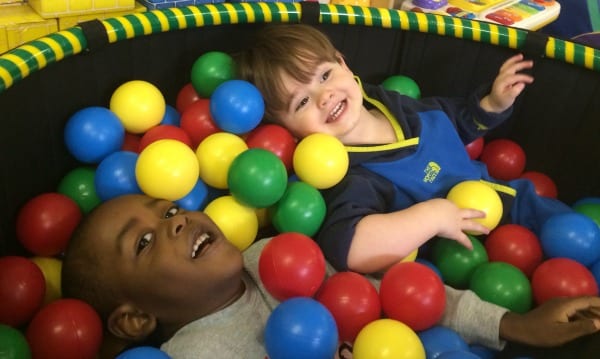
As a parent of two boys – one on the autism spectrum and one typically developing – I have a unique perspective on education and what I as a parent want and expect for my children. My husband and I have always desired for our sons to be in an environment where they would be challenged and loved, but also exposed to the same diversity in people as we saw in our educational experiences.
Upon realizing that our oldest child’s diagnosis would mean that his school years would look different from what we were accustomed to, we set out to find the right preschool environment for him but there were few options that could accommodate his developmental delays and still give him a chance to learn alongside his typical peers.
If the Rise School of Huntsville at UAH had existed when my oldest son started preschool, I would have been the first person at Caroline Bradford’s door, signing my child up for the inclusion program that Rise offers.
What Does Inclusion Mean?
An inclusion program like the Rise School offers special needs children the chance to learn alongside their typical peers. All of the children participate in the same activities and learn the same material, but teachers use a variety of strategies to help each child learn based on his or her abilities. Each child has a set of goals that the teachers work on and everything they do in the classroom, from music to speech to physical therapy and more, helps to move the children closer to meeting those goals.
The Rise School maintains a 50/50 ratio; in a class with eight children, four would be typical and four would have special needs. These small class sizes allow each teacher and aide to give their students plenty of time to work with each on meeting those individual goals. It also means that these teachers can get to know and build close relationships with both parents and child, fostering an environment that allows everyone to thrive. As Jennifer Breuer, a parent at Rise, noted, “to me, Rise feels very much like an intentional community. The parents, teachers, and students have come together to build something meaningful in our community. To provide a place that gives ALL children the opportunity to play, learn, and grow in a loving environment.”
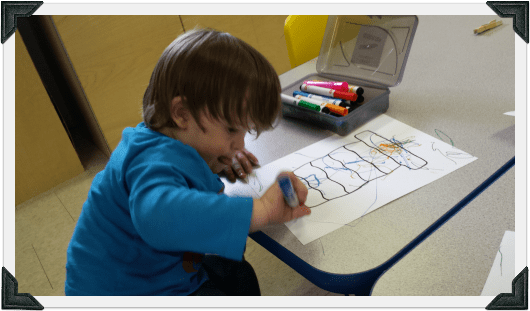
What Does a Typical Day Look Like at Rise?
The school day at Rise starts at 8 am, with each child’s arrival greeted with happy hellos and a routine of collecting lunches and shedding jackets. The parents sign the kids in and chat for a few minutes before waving goodbye for the day.
Depending on the children’s age, they will go over the same concepts that all preschool age children will encounter — the week’s theme (like community helpers or seasons, depending on the time of the year); the day’s weather; the letter of the week, and more. My son’s three-year-old classroom, for example, also has each child greet his classmates in turn and then count the friends present that day. They will spend their day in centers or playing outside. A speech therapist might come by and work with the children, allowing the typical children to model for their special needs peers. The children learn life skills, like self-care (handwashing, toilet training), and pre-writing skills, through coloring, painting, and other activities.

Rise’s program is an opportunity to learn in an environment that has benefits for teachers, parents, and children, typical and special needs. As their day ends at 2.30 pm, parents are greeted with hugs and smiles, getting a report on their child’s day and taking home any treasures their little one created. I’ve been the happy recipient of some excellent gifts from my son, including a lovely little coffee cup that can be seen daily on my own desktop.
Why Choose Rise?
An inclusion program like Rise allows “children with extra needs to reach their full potential by providing them with a solid foundation,” says Melanie Widby, parent of a special needs child at Rise. To the children in her son’s class, he is a friend, another child learning and growing alongside his peers. But being in a classroom with typical peers allows special needs children to learn by mimicking and mirroring what their friends are doing, in terms of areas like gross motor skills and speech. For the typical children, they are getting more one-on-one attention from teachers and learning in a play-oriented and child-led environment.
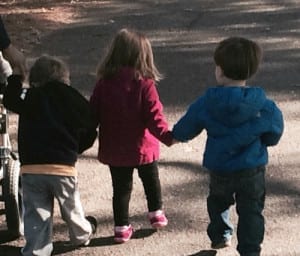 All of these children learn to accept others as they are; as Breuer puts it, “I felt strongly that giving my daughter the opportunity to be surrounded by children of all abilities at such a young age could have nothing but a positive effect on her empathy and character.” Their learning environment allows these children, regardless of their challenges, to thrive and learn and grow and those of us with children at Rise have seen this firsthand.
All of these children learn to accept others as they are; as Breuer puts it, “I felt strongly that giving my daughter the opportunity to be surrounded by children of all abilities at such a young age could have nothing but a positive effect on her empathy and character.” Their learning environment allows these children, regardless of their challenges, to thrive and learn and grow and those of us with children at Rise have seen this firsthand.
As a parent of both a special needs child and a typical child, I’ve seen the good that programs like Rise can do for any child. All children have challenges, but these challenges differ from child to child. An inclusion program allows those challenges to be met and addressed, with each child going at a pace that works best for him or her. It’s a preschool program that I hope more parents will explore and consider for their own children.
![]() Rise School accepts students from ages 18 months to 6 years. To find out more about Rise School of Huntsville at UAH visit their website or call 256-489-7512.
Rise School accepts students from ages 18 months to 6 years. To find out more about Rise School of Huntsville at UAH visit their website or call 256-489-7512.
Take Me Back To…
This post was originally published in May 2015 and has been updated.
Jennifer Kelly grew up in the Birmingham area, but migrated to Huntsville for graduate school and put down roots after meeting her husband, Jamie. In addition to being a mom to her two boys, she is a tennis ninja, trivia nerd, freelance editor, and aspiring writer. You can visit her at The Sir Barton Project, a blog about her upcoming book.


